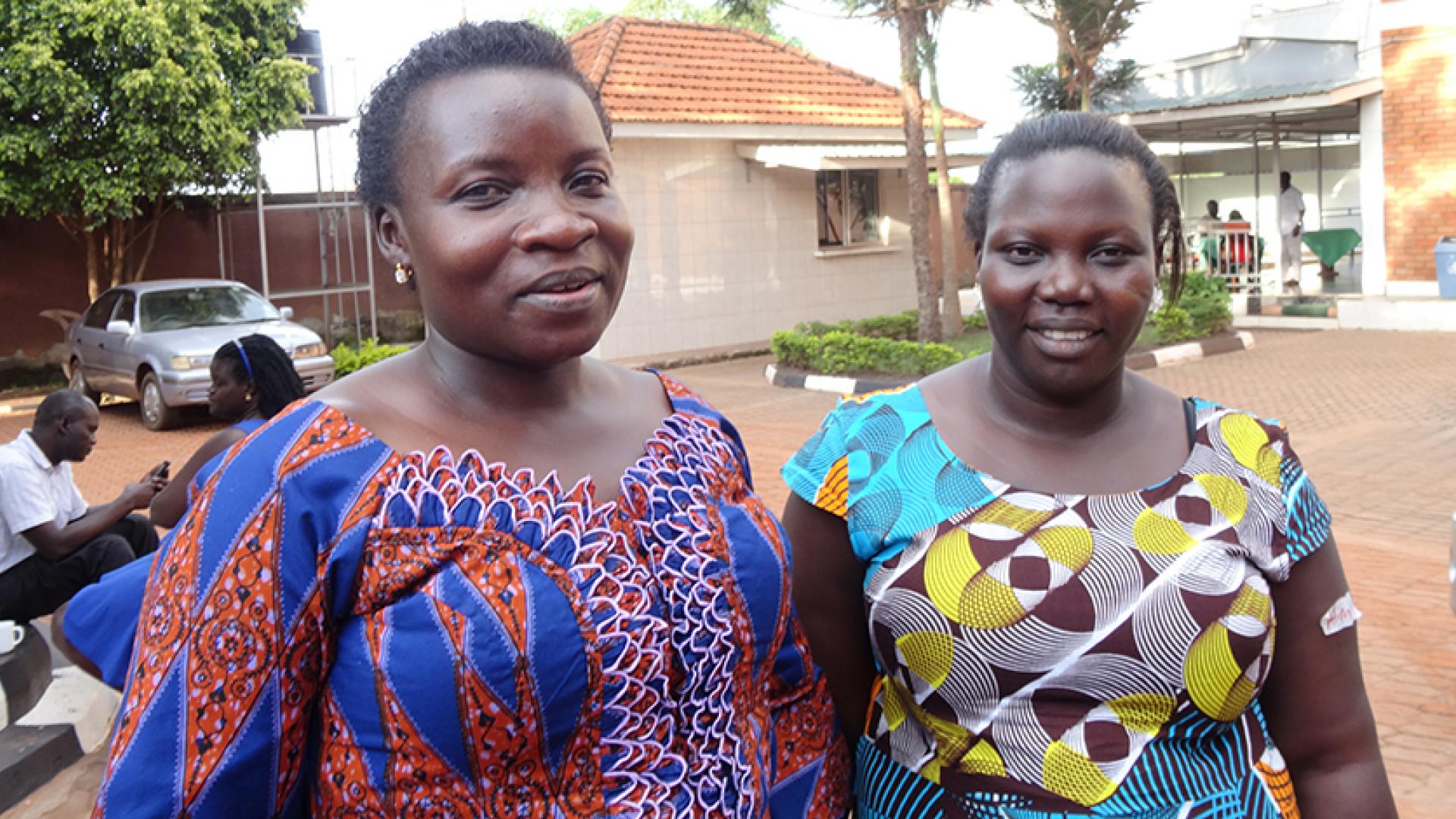Supporting women councillors in Uganda to advocate for women’s rights

“If a man gets with you and wants to stay together then you need documentation” Betty Atim, former district councillor in Gulu and Chair of the Women’s Caucus, explains to her female constituents who face homelessness due to land rights disputes in Uganda.
Betty Atim participated in the Westminster Foundation for Democracy EU funded programme that supported local civil society organisations to raise awareness among district councillors about the Convention on the Elimination of all Forms of Discrimination Against Women (CEDAW). The training on CEDAW delivered by GWED-G has provided local councillors with knowledge about existing international legislation, including on Land Rights, and how it can be used at the local level to protect women.
Raising awareness: What are women’s rights?
“What we [the women’s caucus] are now trying to do – is to sensitise our women and pass it over to them” Betty said. “Please don’t just sit with a man and think that you are settled, you must have something attached to you and that man, we say – and our women are now doing this” she explained.
In Uganda, half of the battle in protecting women from discrimination is ensuring they know what their rights are and that there is legislation in place both nationally and internationally to protect them. WFD’s work in Uganda centred around building the capacity of civil society organisations to ensure that laws designed to protect women were actually implemented at the local level.
“On Land Laws, most of us who were in the council didn’t know that we had the rights. We thought you could only talk about these issues in Church” Betty added “The support [WFD] gave GWED-G on certain components such as land was sobering for the women”.
Rosa Mon Abili, Secretary for education, health, sports and community based services also participated in the training added – “For us as district leaders we always believe that knowledge is power, so once we are invited to meetings like this we don’t want to miss out because we get a lot of information that really empowers us to do our work better and effectively.”
United for change: Working as the women’s caucus
Having the knowledge to act is the first step, but what was equally important for Betty and Rosa was being able to work with other women leaders from different political parties and sub-counties to advocate on behalf of women, something that was made possible through WFD’s support to GWED-G.
Through the women’s caucus, women councillors have worked together to support women in their community facing land disputes. “We move on to say how we can help a women” Betty added “with the grounds that yes she is a widow, but you cannot send a child to come and take over her property.”
Having representatives at the local level who understand the problems you are facing on a day to day basis because of your gender is so important for the women in Gulu that need help. “[She] then feels relaxed from talking to us and us saying that we can go to court, that we will get this issue sorted and that we can identify some good lawyers” Betty explained.
“To win this case you need to come as a unit, I think women are really picking up on that” Betty added reflecting on the importance of working as a caucus. The issue of gender based violence is fundamental to the CEDAW training too and Betty and Rosa felt the caucus was best placed to help with these cases.
“Most of our district leaders were so united that we were not looking at our party level” Rosa Mon Abili reflected on the changes in the district following the training and establishment of the caucus. “We were [focused] on the basis of service delivery and making sure that we throw one voice as women, because every women has the same kind of challenges” she said.
Working together for a brighter future
The sustainability of these changes, which are in their infancy, was something Betty, Rosa and their fellow women councillors knew they would not achieve on their own. Having the knowledge about international legislation, the solidarity of working with other women and the support of male champions are all key to seeing the long-term goal of improved women’s rights in Uganda.
“At least we know that to handle the issue of gender based violence we need men on board” Betty said “by sensitising us women alone, men are looking at it like they are not vulnerable, so by bringing a few men down they are adding to our polling.”
Okelo Peter Douglas Okow, District Speaker in Gulu was one man who played a key role in supporting the women’s caucus last year. “If women and girls do not participate in decision-making then their issues will not be incorporated into the district counties agenda” he explained.
The relationship the women’s caucus developed with the Speaker was crucial as it allowed for key issues, like land management or gender based violence, to be put on the local council agenda. “As the speaker, I interacted with them [the Women’s Caucus] and I am happy to say that this caucus helped the women in lobbying, advocacy and in championing women’s issues at the local government level” he continued.
WFD’s support to GWED-G has ended but we hope the skills, training and support provided to women councillors, male champions and GWED-G itself will continue to help women in rural Uganda. Betty, for example, is just one councillor who now feels confident enough explaining to women why they should not be physically abused, or thrown out of their homes. If she continues to pass on this knowledge and explain to women who come to her for help that they have been treated badly and that they can do something about it, then the future will be very different for women.